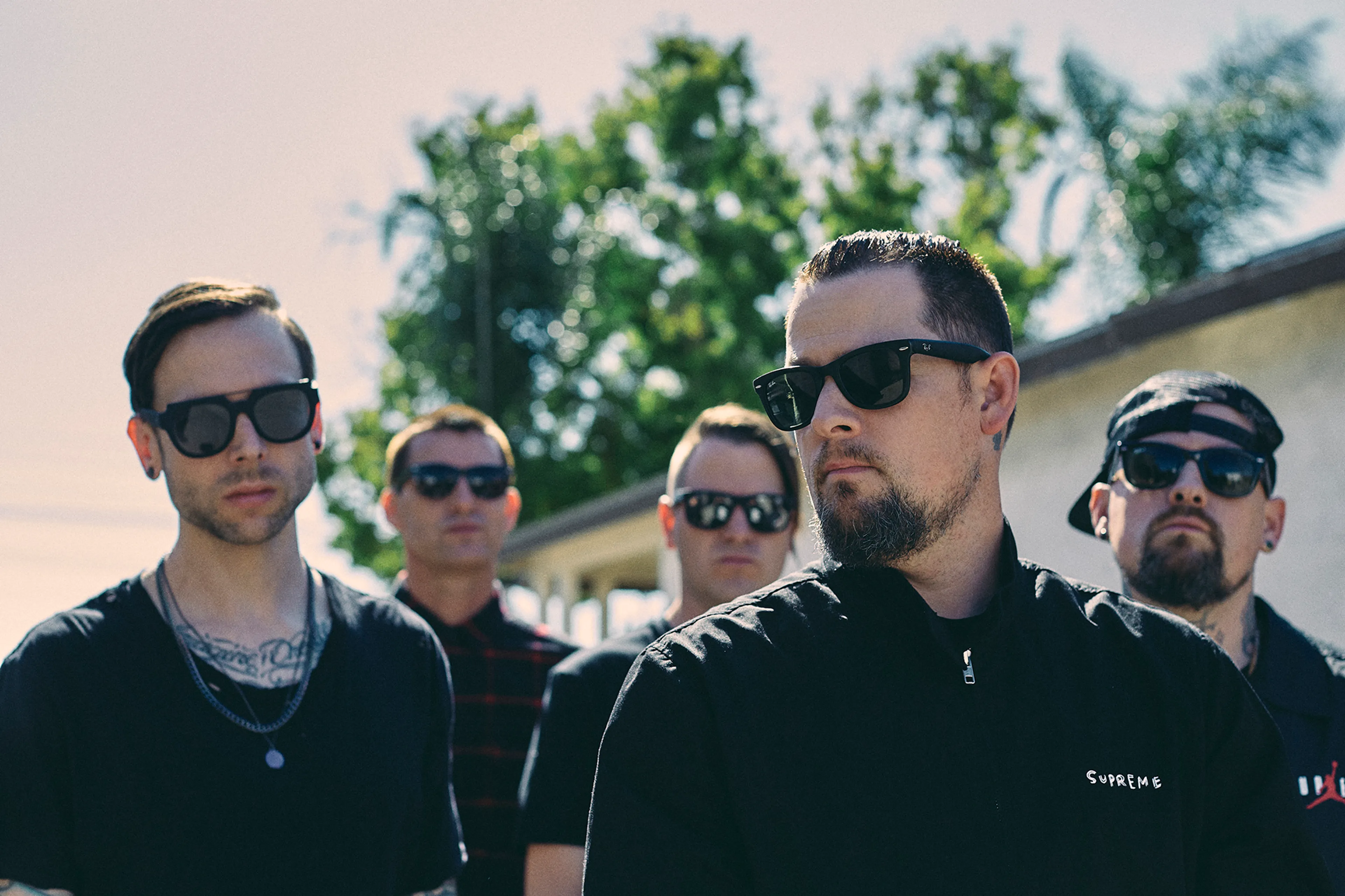The Wi-Fi password is ‘goodcharlotte’, naturally. There are framed photos of other artists on the roster, such as Waterparks, Architects and Sleeping With Sirens on prominent display – visual reminders of the team’s successes thus far – while the Sonos plays a chilled mix of tunes by hip-hop man-of-the-moment Childish Gambino and British indie-pop up-and-comer, Rex Orange County. Above a 60-inch, wall-mounted flatscreen hang four black and white plaques outlining the company’s mission, vision, identity and values. “MDDN is a forward-facing, innovative and value-driven team, of original dreamers, working to make a positive impact on the artistic community and the direction of popular culture,” says one, not untypically.
“Even though it’s our namesake, the greatest thing about this company is the people who work here,” the vocalist proudly declares. “Every single person that works in this building shares those values. There’s no Darth Vader or big boss here. The values in the core of the people who work at MDDN are special.”
As management usher us into Studio B, we’re treated to a playback of a few new tracks, while the remainder await final tweaks and mixes. We hear Prayers, Shadowboxer, Cold Song, Leeches and Actual Pain – the album’s lead single. As each blasts through the studio speakers, the digital console displays the in-joke working title of Bored-182. This is no pop-punk fodder, though. On the strength of these new songs alone, Generation Rx promises to be a Big Rock record – with a capital B and capital R. This at a point when so many of Good Charlotte’s peers and scene progeny seem desperate to make music that’s anything but.
“It’s not a pop-punk record,” nods guitarist Benji, who also oversaw production on this album in-house, alongside engineer Zakk Cervini. “A big rock record is exactly what it is. And it’s a live record, because we fell in love with playing live again together.”
Unexpectedly, members of a big-deal rock band pop their head in, searching for a mic. It turns out they’re here recording in one of the compound’s other studios, though they insist the process is still very much in the nascent “early doors” stage. It’s all so hush-hush that that’s about as much as we can reveal at this stage, but they’ll be looking to build on their arena-selling status on their next record. Despite that, if there is any pressure, they certainly aren’t showing it. Further down in yet another studio, past perfect white walls given a dash of colour, thanks to the framed copies of Good Charlotte’s previous Kerrang! covers, Kentucky post-hardcore quartet Emarosa are also busy laying down new recordings. In the adjacent kitchen, frontman Bradley Walden talks through his nutrition and fitness regime with the eldest Madden brother Josh, who also serves as the chief creative officer for the company.
The atmosphere throughout is one of calm and focus, yet a hive of creativity with pockets of industrious energy every which way you turn. It’s not hard to imagine Generation Rx coming together within these walls over the past few months. What is difficult to fathom, however, are the logistics of its creation. Questions remain, such as: how the Maddens found the time to dedicate to it? And indeed, why, and why now? One look around MDDN and it’s clear there’s more than enough to keep the pair busy, let alone trying to account for time spent with wives and children.
